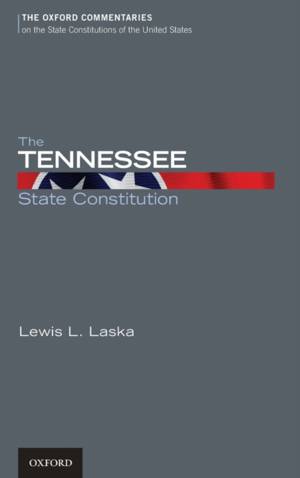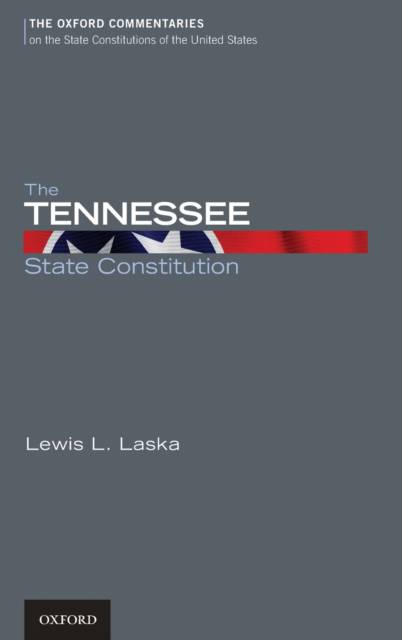
- Afhalen na 1 uur in een winkel met voorraad
- Gratis thuislevering in België vanaf € 30
- Ruim aanbod met 7 miljoen producten
- Afhalen na 1 uur in een winkel met voorraad
- Gratis thuislevering in België vanaf € 30
- Ruim aanbod met 7 miljoen producten
Zoeken
Omschrijving
Tennesseans pioneered innovations in self-government beginning in 1772, and they have continued to do so since the enactment of their first formal constitution in 1796. Over time, Tennessee has adopted, abolished, and changed it's constitution as political and social needs demanded and allowed. In The Tennessee State Constitution, Lewis L. Laska provides a comprehensive introduction to Tennessee's constitution including a history of its development beginning in the 1700s, article-by-article commentary on the constitution itself, and an extensive bibliography of Tennessee constitutional history. This essential guide to the Tennessee constitution also presents valuable commentary on the constitution's preamble and 11 articles including the declaration of rights, the distribution of powers, the executive department, elections, impeachments, the judicial department, state and county officers, militia, disqualification, oaths, bribery of electors, new counties, and miscellaneous provisions. Also included are an annotated bibliography of Tennessee constitutional history including references to pre-statehood compacts, the constitutions of 1796 and 1835, the Civil War, Reconstruction and the 1865 amendments, the constitution of 1870, attempted constitutional reform, and five constitutional conventions from 1953 to 1977. A table of cases completes this unsurpassed reference guide that will be referred to and relied upon by constitutional scholars and students as well as legal historians. Previously published by Greenwood, this title has been brought back in to circulation by Oxford University Press with new verve. Re-printed with standardization of content organization in order to facilitate research across the series, this title, as with all titles in the series, is set to join the dynamic revision cycle of The Oxford Commentaries on the State Constitutions of the United States. The Oxford Commentaries on the State Constitutions of the United States is an important series that reflects a renewed international interest in constitutional history and provides expert insight into each of the 50 state constitutions. Each volume in this innovative series contains a historical overview of the state's constitutional development, a section-by-section analysis of its current constitution, and a comprehensive guide to further research. Under the expert editorship of Professor G. Alan Tarr, Director of the Center on State Constitutional Studies at Rutgers University, this series provides essential reference tools for understanding state constitutional law. Books in the series can be purchased individually or as part of a complete set, giving readers unmatched access to these important political documents.
Specificaties
Betrokkenen
- Auteur(s):
- Uitgeverij:
Inhoud
- Aantal bladzijden:
- 200
- Taal:
- Engels
- Reeks:
Eigenschappen
- Productcode (EAN):
- 9780199779079
- Verschijningsdatum:
- 11/04/2011
- Uitvoering:
- Hardcover
- Formaat:
- Ongenaaid / garenloos gebonden
- Afmetingen:
- 245 mm x 162 mm
- Gewicht:
- 453 g

Alleen bij Standaard Boekhandel
+ 486 punten op je klantenkaart van Standaard Boekhandel
Beoordelingen
We publiceren alleen reviews die voldoen aan de voorwaarden voor reviews. Bekijk onze voorwaarden voor reviews.











